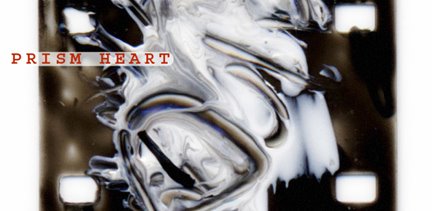This is a clip (Message For The Queen) from the film 300 that I recently saw.
Apparently Tyler Bates was influenced by the magical traditions of Bulgarian folklore. Though Tyler Bates claims to have composed the song it is obvious that in fact he didn't. Many people were not happy with that fact but in cases like such it is impossible to track down the composer of the song , since many of the Bulgarian folk songs are made by the people for the people and they do not belong to anyone but to the Bulgarian people. I was extremely happy to hear the song in this movie but I wished the filmmaker and the composer researched more thoroughly the history of this beautiful musical piece and credited it properly in the titles. And I want to make it clear that I am saying this not for the sake of a specific artist or musician, but for the sake of Bulgarian folklore. I do believe it is high time that people start recognizing and appreciating more the amazing Bulgarian culture. However, if people don't know where exactly that musical piece was taken from they would not get curious and explore more what Bulgaria has to offer.
First lyrics record of the song was published in Turnovo (Bulgaria) by Ljuben Karavelov in 1878.
Here is the original lyrics of the song and an English translation. I have to note several things...It is impossible to translate the absolute meaning of this song the same way we Bulgarians hear it. A small example is the fact that the woods in Bulgaria have a very powerful meaning for us. The word itself in Bulgarian is "gora" and is in feminine grammatical gender (Bulgarian grammar) and for this reason the performer also calls the woods sister- "sestro". In addition, in the past the woods was the place where many of the revolutionary movements had hidden and many Bulgarian sons and daughters found their death there. The woods is a sacred place in Bulgaria. It was a shelter and a "mother" for many Bulgarians for a long time.
Zaidi zaidi iasno slunce
zaidi pomrachi se
I ti iasna mesechinko
Zaidi zaidi udavi se
Plachi goro plachi sestro
Dvete da zaplachem
Ti za tvoite lista goro
Az za moita mladost
Tvoite listia goro sestro
Pak shte se zavurnat
Moita mladost goro sestro
Niama da se vurne
------------------------------------------------------------------
Hide… hide… bright sun
Hide….. go dark
You too bright moon
Hide… hide…. Drawn
Cry woods, cry sister
We should both cry
You- for your fallen leaves
and I -for my youth
Your leaves, woods, sister
They will grow back one day
My youth, woods, sister
It will never come back

Amazing song! Truly wonderful piece of Bulgarian folklore!
ReplyDeleteGreat article.
Zajdi, zajdi, jasno sonce ("O Set, O Set, Clear Sun"; Macedonian: Зајди, зајди, јасно сонце) is a newly composed folk song written and composed by Aleksandar Sarievski.
ReplyDeleteThe song's melody and vocals are highly ornamented; thus, artists from the former Yugoslavia routinely perform the song live "to prove they can really sing".[1] In Bulgaria it is considered a Bulgarian folk song.[2]
For people who say it's a newly composed Macedonian song, read this:
ReplyDeleteFirst lyrics record of the song was published in Turnovo (Bulgaria) by Ljuben Karavelov in 1878.
Before you say Bulgarians have stolen it, think about dates. Thank you. :)
Pravo moito
ReplyDeleteSasha,
ReplyDeleteIs there any insight you can provide to the version of this song in the linked video?
https://www.youtube.com/watch?v=dTU0SN3Eb68
I find this song to provoke a great deal of emotion within me for some reason and would appreciate any feedback you could provide as to the translation of this version and its origin. Thanks so much!
Hi Michael, this is the same song as above just a different interpretation. Here is another example of Bulgarian folklore song: https://www.youtube.com/watch?v=wQ9BkiDEsGw
ReplyDeleteworth checking these as they are all very emotional
Thanks for the reply. I will check out your suggestion.
ReplyDeleteCould you help me with the best possible translation to English for the version I posted? It's very brief. I have tried the translation apps but don't seem to have much luck. Any help you could provide would be much appreciated!
Hi, you can see the translation in the above original post. I hope this helps.
ReplyDeletemie i-mi placea melodia si o ascultam cu drag fara sa stiu ce inseamna pana ce la servici mi-am rugat o colega bulgaroaica sa o traduca , dupa ce a ascultat primele versuri a inceput sa planga si mi-a spus ca nu poate sa o traduca deoarece e tragica asa ca am cautat eu traducerea dar nu mai ascult aceasta melodie la servici nu vreu sa o ranesc pe colega
ReplyDeleteSorry, just saw your comment. It’s a tragic song and if your colleague lives abroad they are probably also very nostalgic about their home. I will post later some upbeat folklore songs - hopefully they will make your colleague smile. :)
DeleteI prophecy come true in our times.
ReplyDeletethank you. I now have some idea what the ladies of the village mourn when they chant this in the radius of the house on philip todor
ReplyDeleteOh, where is that village? Unfortunately a lot of Bulgarian folklore has a lot of sadness and mourning in it due to the history of the country ( Byzantium invasions , then Ottoman rule for 5 centuries). However, there are some upbeat folklore songs as well. Will post some later.
DeleteAnd here is one of my favourite upbeat folklore songs. My grandma used to sing it a lot to us. :) https://youtu.be/aKkLDYoUyQs
ReplyDelete